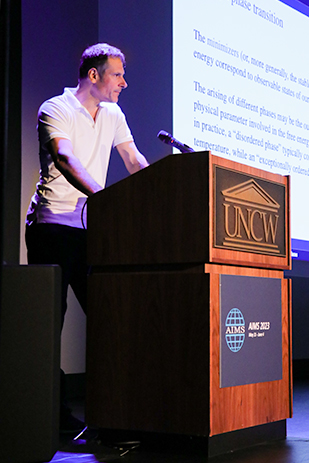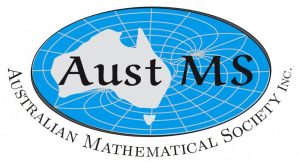Elliptic Partial Differential Equations from an Elementary Viewpoint. A Glance at the Classical Theory
Sponsored by
Lecturer
Prof. Enrico Valdinoci (University of Western Australia)
Synopsis
We will develop functional and geometric methods to uncover special features exhibited by solutions of certain partial differential equations.
The fact is that, on the one hand, it would be desirable to “solve” all the partial differential equations that have some meaning for our existence, but no one knows how to do this.
On the other hand, you know, what doesn’t kill you makes you stronger, and adversity often breeds strength: the inability to find explicit solutions has spurred many beautiful minds to devise ingenious methods for understanding solutions without actually solving the equation!
This course will explore some of these classical discoveries, also establishing connections with mathematical structures that emerge in other disciplines.
The development of the theory will be done in close connection with relevant real-life topics. On the one hand, concrete examples from physics, biology, and engineering will provide motivations and help us developing a solid intuition of the mathematical methods employed; on the other hand, the mathematical results presented will shed light on the phenomena under consideration and provide decisive information in our understanding of the world around us.
Course Overview
The course will be adjusted to the level and interests of the students, but tentatively:
WEEK 1
- What is the Laplacian and what is it good for?
- Some classical partial differential equations.
- The mean value formula.
- The Laplace-Beltrami operator.
- The Kelvin Transform
- The fundamental solution
- Maximum Principles
- The Green Function
WEEK 2
- The Poisson Kernel
- Analyticity of harmonic functions
- The Harnack Inequality
- The Hopf Lemma
- Cauchy’s Estimates
- The Weak Harnack Inequality
- The Boundary Harnack Inequality
WEEK 3
- Liouville’s Theorem
- Harmonic polynomials and spherical harmonics
- Potential theory and Schauder estimates for the Laplace operator
- Pointwise Hölder spaces
WEEK 4
- Schauder estimates
- Sobolev spaces
- Introduction to the regularity theory in Lebesgue spaces
- Applications
Prerequisites
- Calculus, Multivariate calculus.
This is intended to be a foundational course.
Assessment
- 2x take home assignments (due weeks 1 & 3) – 25% each
- Take home final exam (50%)
Attendance requirements
TBA
Resources/pre-reading
The course will use part of the following book:
Not sure if you should sign up for this course?
Take this QUIZ to self-evaluate and get a measure of the key foundational knowledge required.

Enrico Valdinoci (University of Western Australia)
Enrico Valdinoci is Professor of Mathematics and Australian Laureate Fellow.
He carried out his academic career in Pisa, Rome, Milan, Berlin, Melbourne, and Perth.
He is a highly cited researcher and has been awarded the James Wong Prize, the Mahony-Neumann-Room Prize, the Orazio Arena Prize, the Book Prize of the Unione Matematica Italiana, and the Amerio Gold Medal Prize.

